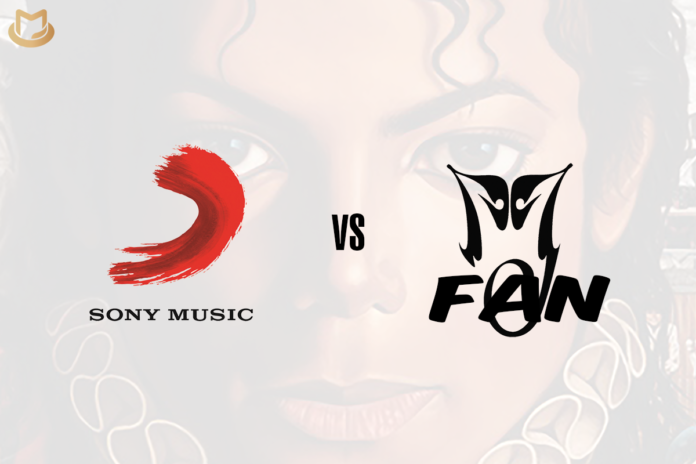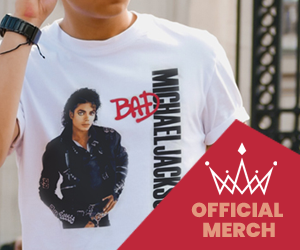Despite settlement between Vera Serova and Sony Music Entertainment regarding the three “fake” songs on the “Michael” Album, the Supreme Court of California released an opinion piece that will help future similar cases.
On Thursday, the California Supreme Court weighed in with a ruling that set new legal precedent around entertainment advertising.
The question the state’s highest court considered pitted consumer protections against claims of free speech in advertising. The court came down on the side of consumers.
It ruled that Sony Music Entertainment’s advertising of the songs on “Michael” as authentic was commercial speech — and, therefore, subject to consumer protection laws.
It also rejected Sony’s assertion that the claims of authenticity — on the back of the album and in a promotional video — were protected against consumer litigation by a free speech statute designed to protect statements on matters of public interest from becoming the subject of onerous and expensive litigation.
The ruling, which reverses a lower appellate court decision, was cheered by consumer protection advocates as an important check on advertisers of music and other art, and as a commonsense win for everyday consumers who don’t deserve to be duped by purveyors of artistic products — even if those products have broad speech protections.
“The danger of this type of case is that a court might be drawn, by the artistic nature of the product at issue, to favor 1st Amendment and artistic expression concerns over consumer protection concerns,” said Ted Mermin, executive director of the Berkeley Center for Consumer Law & Economic Justice. “But on a common sense level, [we] know that if we are buying an album that is marketed as being the songs of Michael Jackson, it had better have the songs of Michael Jackson.”
In a unanimous opinion for the state’s seven-member high court Thursday, Justice Martin Jenkins wrote that Serova’s claims that the advertising of the album violated two California consumer protection laws had merit, and could not be dismissed based on Sony’s free speech argument.
“Perhaps in another context the First Amendment would limit the reach of our consumer protection laws, but Sony’s album-back promise and video are commercial advertising making claims about a product, and we will not place them beyond the reach of state regulation,” Jenkins wrote.
The decision was perhaps less important to Serova than it would have been just a few weeks ago, before she reached an undisclosed settlement in the case with Sony and Jackson’s estate. But legal observers said it was no less important for California consumers and the entertainment industry generally because it was handed down by the highest court in California, where much of the world’s music, film and television is produced.
Jenkins noted the importance of the underlying issues in the case in explaining why the court issued its opinion despite the settlement and the likelihood that the case will be dismissed after it is remanded back to the lower courts.
A spokeswoman for Sony did not respond to a request for comment on the decision. A spokeswoman for Jackson’s estate declined to comment.
In some ways, the dispute remains over who sang the three songs, though the parties to the lawsuit had agreed to stipulate in court, for the purposes of their arguments, that the songs were not sung by Michael Jackson.
Dennis Moss and Jeremy Bollinger, attorneys for Serova, said Thursday that their expectation was that all claims in the case — including claims against other parties involved in the production of the album — would be dismissed based on the settlement with Sony and Jackson’s estate.
They also praised the high court’s ruling, saying it marked a victory not just for Serova but for other music and art consumers.
The lower appellate court had ruled that Sony’s advertising of the album “did not simply promote sale of the album, but also stated a position on a disputed issue of public interest” — whether Jackson had sung the songs — and therefore was protected speech.
Had that ruling held, Bollinger said, it would have set a “dangerous precedent for consumer protection laws” by emboldening music advertisers to stretch the truth.
Instead, he said, the high court reaffirmed protections for art consumers, including in cases where the entity responsible for the false advertising was unaware the speech was false. Sony had claimed it didn’t know the Cascio songs weren’t sung by Jackson, believing the opposite.
“The decision confirmed that it doesn’t matter whether the seller has personal knowledge of the veracity of its statements about its products,” Bollinger said. “If you’re going to sell something, you’re responsible for those representations.”
Jenkins affirmed that standard in the high court’s opinion, noting that, if ignorance around a product’s authenticity were a legitimate defense against false advertising claims, sellers would be incentivized to know as little as possible about their own products.
“Sellers making claims about their offerings surely do not avoid false advertising regulation, or have their claims treated as noncommercial speech, by scrupulously declining to verify those claims or to acquire knowledge,” Jenkins wrote. “A knowledge test would undermine false advertising law and reward turning a blind eye.”
Mermin, of the Berkeley center, co-wrote an amicus brief in the case and argued that Sony’s advertisements of the album were indeed commercial speech. He said he was pleased with the ruling, calling it the right balance between protecting consumers and preserving artistic freedoms.
Mermin said the court’s decision rejected Sony’s anti-SLAPP arguments narrowly, based only on the facts of the case in question, so did not set broad new precedent around the use or misuse of the law by corporations.
Nonetheless, he said, the high court’s ruling put companies on notice that the state’s anti-SLAPP statute does not leave them free to mislead consumers when advertising art.
“The fact that this is going to put down a boundary there, at least as far as the entertainment industry goes, is very important,” he said.
You can find the full opinion of the Supreme Court HERE
Related Articles: MJ Fan vs Sony/Estate lawsuit: Sony might not be out of trouble / MJ Fan vs Sony/Estate lawsuit, Hope is not lost. / Sony wins Fake Michael Jackson Recording Claims for Second Time.




